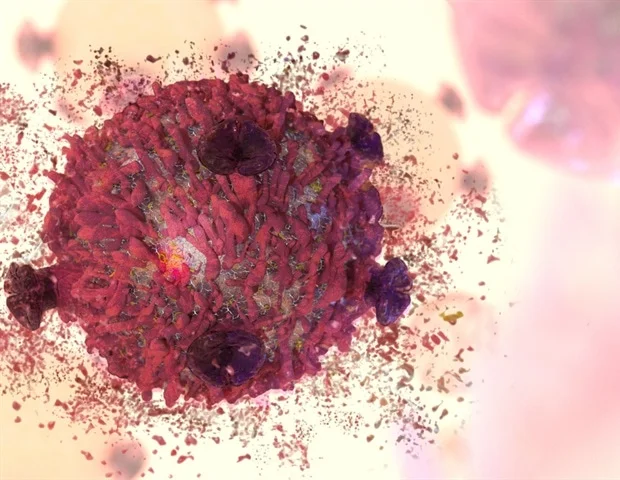
Investigators at Rutgers Cancer Institute of New Jersey have found that a treatment based on a novel cellular product programmed to deliver an overabundance of chimeric antigen receptor causes cell death in non-Hodgkin lymphoma models that are sensitive or resistant to standard therapies. Andrew M. Evens, DO, MSc, FACP, associate director for clinical services and director of the Lymphoma Program at Rutgers Cancer Institute and medical director of oncology services at RWJBarnabas Health, who is the senior and corresponding author of the work, shares more about the results published in the November 26 online edition of Leukemia (doi: 10.1038/s41375-019-0663-x):
Why is this topic important to examine?
B-cell non-Hodgkin lymphomas are the most common form of lymphoma in the Western world. The disease is generally treatable, but a vast majority of patients with slow-growing disease is incurable and a significant minority of patients with an aggressive form of B-cell non-Hodgkin lymphoma die from it.
Improved therapies are needed for this population, especially targeted immunologic drugs with limited side effects. We examined a novel and targeted cellular product bioengineered to express human anti-CD19 chimeric antigen receptor (CD19-CAR) using a fully activated clinical grade "off the shelf" human natural killer (NK) cell line. The goals of the studies were to establish the efficacy and mechanistic basis for CD19-CAR NK-based therapy in B-cell lymphoma.
How was the research structured, and what did you find?
We demonstrated that the CD19-CAR-NK agent-induced prominent cytolytic activity in rituximab- and obinutuzumab-resistant cells, patient-derived primary cells, and a human lymphoma xenograft model. Furthermore, the kinetics of CD19-CAR-NK cell death measured via droplet-based single-cell microfluidics analysis showed that most cells were killed by a single contact, with anti-CD20 resistant cell lines requiring significantly longer contact duration.
In addition, we compared the genomic responses of CD19-CAR-NK treated lymphoma cells and identified significant biologic changes and heterogeneity across many of the cells and models. However, there was fairly consistent and prominent activation of interferon signaling, execution of apoptosis, ligand binding, and immunoregulatory and chemokine signaling pathways in many of the lymphoma cells with CD19-CAR-NK treatment. Finally, system biology analyses revealed that induction of genes relevant to mTOR and G2/M checkpoint activation was present in all anti-CD20 resistant lymphoma cells treated with CD19-CAR-NK.
What are the implications of these findings?
Altogether, CD19-CAR-NK had potent anti-lymphoma activity across a host of sensitive and resistant lymphoma cells and we delineated mechanisms of biologic resistance that suggested preferred combinations with CAR therapy as well as potential immunologic biomarkers for clinical application of this novel "off the shelf" immunotherapeutic agent.
Rutgers Cancer Institute of New Jersey
Journal reference:
Ravi, D., et al. (2019) Interaction kinetics with transcriptomic and secretory responses of CD19-CAR natural killer-cell therapy in CD20 resistant non-hodgkin lymphoma. Leukemia. doi.org/10.1038/s41375-019-0663-x.






No comments
Post a Comment